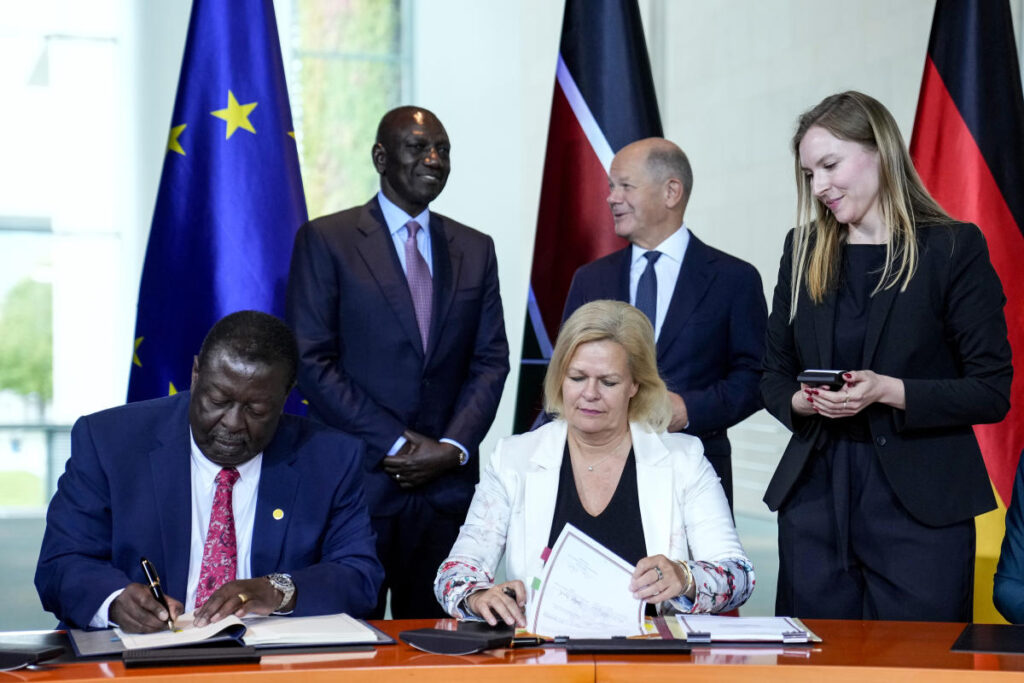BERLIN (AP) — German and Kenyan officials signed an agreement in Berlin on Friday to boost the recruitment of skilled workers to fill gaps in the German labor market and to facilitate the repatriation of Kenyans who do not have the right to remain in Germany.
The agreement was signed during a visit to Germany by Kenyan President William Ruto, who met with German Chancellor Olaf Scholz.
Scholz told reporters after the signing ceremony that it was an important agreement that marks an effort by Germany and Kenya to work more closely together on migration.
“This can help us to compensate for the shortage of skilled workers,” Scholz said, adding that Germany is already feeling the effects of such a labor shortage and that this “will continue for years and decades to come.”
Germany has been struggling for years with the need to more skilled workers from outside the European Union. According to experts, the country needs about 400,000 skilled immigrants a year as its aging workforce shrinks.
“On the other side of the coin, so to speak, the agreement provides for effective return procedures for those who came to us from Kenya but do not have or cannot obtain the right to stay here. They can now return home more easily and quickly,” Scholz said.
Ruto said the agreement is mutually beneficial as it combines the potential of highly educated young Kenyans with German technology and resources.
He said he was not concerned that the departure of some Kenyans could harm the development of his own country, noting that Kenya has a large youth population, with an average age of about 20. He said there were enough to support the further development of both Kenya and Germany.
According to Scholz, Germany would benefit from the large number of Kenyan IT specialists.
Germany has already signed similar agreements with India, Georgia and Morocco. This weekend, Germany will also sign one with Uzbekistan during a visit by Scholz to that country, according to the German news agency dpa.
The agreement was signed on Friday by German Interior Minister Nancy Faeser and Kenyan Prime Minister Musalia Mudavadi at a ceremony at the Berlin Chancellery, with Scholz and Ruto supporting them.
Scholz’s unpopular coalition government faces a challenge from the far-right, anti-immigration Alternative for Germany (AfD) party, which performed well in two recent state elections in East Germany. Another one will be held on September 22 in Brandenburg, the state around Berlin.

